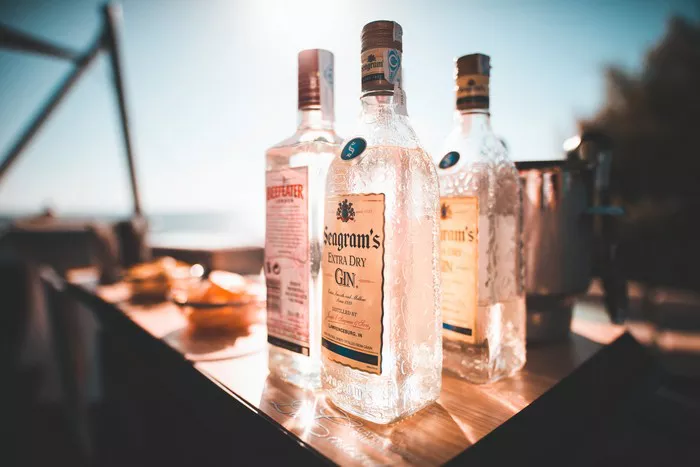The debate surrounding the potency of various alcoholic beverages has long been a topic of interest among enthusiasts and researchers alike. One common comparison frequently examined is the strength of tequila versus vodka. Both spirits are renowned for their distinct flavors, production methods, and cultural significance. However, determining which one holds greater strength involves a nuanced exploration of alcohol content, distillation processes, and individual perceptions.
Alcohol Content and Proof: Understanding the Basics
To comprehend whether tequila surpasses vodka in strength, one must delve into their alcohol content. Vodka is typically distilled to a high alcohol by volume (ABV) level, often ranging between 35% to 50%. Conversely, tequila usually boasts an ABV content of about 38% to 40%. Despite this difference, both spirits can have varying alcohol strengths based on the brand, production techniques, and classification.
Tequila: Unveiling Its Potency and Varieties
Tequila, a spirit originating from Mexico, is primarily made from the blue agave plant. Its potency is largely influenced by the production process. Blanco or silver tequila, unaged and straightforward, generally contains a higher alcohol content. However, as tequila matures in barrels, it transforms into reposado or añejo, sometimes resulting in a smoother taste but not necessarily a lower alcohol percentage.
Comparatively, vodka’s strength often depends on the number of distillations and filtration processes it undergoes. The usual distillation of vodka to a higher proof contributes to its renowned neutrality and clarity, which can mask its actual alcohol strength, causing misconceptions about its potency compared to tequila.
Factors Affecting Alcohol Strength: Beyond ABV
Beyond the stated alcohol by volume, several factors influence the perceived strength of spirits. The way they are consumed, combined with mixers or in cocktails, greatly affects how quickly the alcohol is absorbed into the bloodstream, impacting the perceived potency. Moreover, personal tolerance and the rate of consumption play pivotal roles in determining the subjective strength of both tequila and vodka.
It’s essential to acknowledge that some flavored vodkas or tequilas might have lower alcohol contents compared to their unflavored counterparts. This deviation in ABV can alter the perceived strength of these spirits in comparison to one another.
Distillation Processes: Impact on Potency
The distillation process significantly contributes to the perceived strength of spirits. Vodka undergoes multiple distillations to eliminate impurities, resulting in a smoother taste and often contributing to its higher alcohol content. This process is vital in determining the clarity and potency of the final product.
On the other hand, tequila, especially artisanal versions, might have a varied production process, including pot still distillation, which could retain more congeners, contributing to a perceived stronger taste despite having a slightly lower ABV than some vodkas.
See Also: Is Tequila Healthier Than Vodka? Unraveling the Myths and Facts
Cultural Significance and Perception: Influence on Potency Beliefs
Cultural contexts and regional preferences can also impact beliefs regarding the strength of tequila versus vodka. Tequila, deeply rooted in Mexican culture, often carries a historical and traditional significance. This cultural association might influence perceptions about its strength compared to vodka, which holds a different cultural significance in regions like Russia or Eastern Europe.
The marketing and branding strategies employed by distilleries can also influence perceptions of potency. Through advertisements and product positioning, consumers might develop preconceived notions about the strength of certain spirits, affecting their subjective experience when consuming them.
Subjectivity of Perception: Personal Experience and Sensation
One’s experience with alcohol can shape their perception of its strength. Factors like individual tolerance, taste preferences, and past experiences with different spirits significantly influence how one perceives the strength of tequila in comparison to vodka. Moreover, sensory factors like smell, taste, and even the serving temperature can alter the perceived potency of these beverages.
The psychological aspect of perception also plays a crucial role. Expectations about the strength of a particular spirit, influenced by its reputation or brand, can impact how it is perceived when consumed.
Mixing and Cocktails: Altered Perceptions of Strength
When used in cocktails, both tequila and vodka can exhibit varying perceived strengths. Mixing these spirits with different ingredients or diluting them alters their taste profiles, potentially affecting how strong they feel when consumed. Cocktails like Margaritas or Martinis, prepared with either tequila or vodka respectively, might mask the raw strength of the spirit itself, making it challenging to discern their actual potency.
Conclusion: Deciphering the Strength of Spirits
The question “Is tequila stronger than vodka?” involves a multifaceted exploration encompassing alcohol content, production processes, cultural significance, individual perception, and mixology. While tequila typically holds a slightly lower ABV than many vodkas, various subjective and contextual factors contribute to the perceived strength of these spirits.
Ultimately, the strength of tequila versus vodka is not solely determined by alcohol content but is a complex interplay of factors, including personal experience, cultural influence, production methods, and mixing techniques. Understanding these nuances provides a clearer perspective on the nuanced world of spirits, challenging conventional beliefs and offering a deeper appreciation for the diverse characteristics of tequila and vodka.


